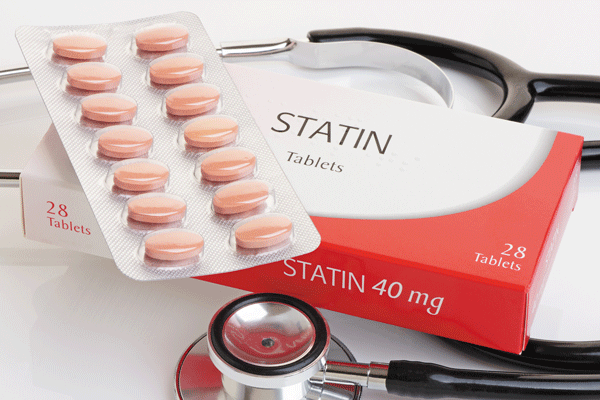
New thinking about plaque in arteries that feed the brain

Want to prevent shifting teeth? Maybe you need retainers

What you need to know about the new dietary guidelines

Food that’s healthier for people and planet can be cheaper, too

New evidence that polyphenol-rich foods help the heart

8 simple ways to reduce ultra-processed foods in your diet

How to curb your stress eating

How to spot Parkinson’s disease symptoms

Heart failure symptoms in women: How they’re different

GERD diet: Foods to avoid to reduce acid reflux
Cholesterol and lipids Archive
Articles
Fasting before a cholesterol test
Fasting for eight to 12 hours before a cholesterol test doesn’t seem to be necessary. But for now, people should continue to follow their physicians’ advice on this matter.
Your blood work, on the edge of normal
What to do when routine test results are at the high or low end of the acceptable range.
Catching early changes in blood work may help prevent chronic disease, such as diabetes.
Image: Ca-ssis/Thinkstock
As a smart medical consumer, you know it's important to look over the results of your routine blood work, even when the numbers are all within the normal range. But what if you notice that some results are at the high or low end of that range? Should you be concerned about this?
Drink more water to cut calories, fat, and sugar?
Increasing daily water intake by one, two, or three cups daily can help reduce total calorie intake and lower a person’s intake of saturated fat, sugar, sodium, and cholesterol.
Dietary supplements for cholesterol: Are any worth a try?
Various herbs and other supplements have been touted for their ability to improve cholesterol levels. Here's what the research shows — and doesn't show — about some of the best-known products.
Hawthorne. The leaves, berries, and flowers of this plant are used to make medicine that was traditionally used to treat cardiovascular diseases. It may lower cholesterol by increasing the excretion of bile and decreasing the body's production of cholesterol. Verdict: It may possibly help.
Why you may need a statin
Although risk calculators disagree, at some point age becomes the deciding factor in the decision to take a cholesterol-lowering medication.
Image: Thinkstock
If you've been diligent about monitoring your risk factors for developing heart disease, you may have realized that online calculators can be helpful. If you have the results from your latest cholesterol test, these online calculators can compute your chance of having a heart attack or stroke in the next decade:
Framingham Risk Calculator http://cvdrisk.nhlbi.nih.gov
ACC/AHA Heart Risk Calculator www.cvriskcalculator.com
Reynolds Risk Score www.reynoldsriskscore.org
However, each may give you a slightly different number. And while the Framingham calculator might indicate that your risk is low and therefore you don't need a cholesterol-lowering statin drug, the ACC/AHA calculator could indicate that you should be taking a statin to reduce your risk.
Do you need a cardiologist?
Your primary care provider should help you control risks for heart disease and refer you to a cardiologist if needed.
Any primary care provider you see—a doctor, nurse practitioner, or physician's assistant—should offer detailed advice on how to lessen your odds of cardiovascular disease, which is responsible for one in three deaths in the United States. However, some people need more specialized care for their hearts.
"I see or hear from a lot of people who have very common problems, like high cholesterol and high blood pressure, who think they need to see a cardiologist," says Dr. Patrick O'Gara, a cardiologist at Harvard-affiliated Brigham and Women's Hospital. For many people, a primary care physician can effectively manage those problems. But if you have specific concerns, talk to your doctor about whether more specialized care might be beneficial, says Dr. O'Gara.
Walnuts can lower cholesterol
Research we're watching
Walnuts are loaded with folate, vitamin E, and lots of good fats. Although they are also high in calories, they don't seem to contribute to weight gain. Researchers at Yale University Prevention Research Center wanted to determine if eating walnuts daily could help people at risk for diabetes control their cholesterol and blood sugar.
The researchers randomly assigned 112 people ages 25 to 75—70% of whom were women—to two groups. People in both groups were given 2 ounces of walnuts to eat daily. They were told to eat whatever else they wanted but to keep a record of what they ate. One group was also told to eat 366 fewer calories from other food to compensate for the calories added by the walnuts. Both groups ate the walnuts for six months, and their customary diet without walnuts for another six months.
Heart attack despite low cholesterol?
Ask the doctor
Q I have a relative who had a total cholesterol value of 155, yet he still had a heart attack with 90% blockage in one artery. How could that happen?
A I understand your confusion, considering how doctors have long focused on the importance of having an optimal total cholesterol level (less than 200 milligrams per deciliter or mg/dL) as a way to lower the chance of having a heart attack. It's actually the harmful LDL cholesterol value that's most important in terms of this risk. However, a person with a total cholesterol level of 155 mg/dL probably has an LDL level under 100 mg/dL, which is currently considered a reasonable target for avoiding heart disease.
Cholesterol: What's diet got to do with it?
Image: iStock
Cholesterol in the foods you eat generally has little effect on levels in your bloodstream. But your overall diet does.
Cholesterol has a bad reputation, thanks to its well-known role in promoting heart disease. Excess cholesterol in the bloodstream is a key contributor to artery-clogging plaque, which can accumulate and set the stage for a heart attack. But if you're like many people, you might not understand cholesterol's other key functions—or the connection between the cholesterol you eat and that in your bloodstream.

New thinking about plaque in arteries that feed the brain

Want to prevent shifting teeth? Maybe you need retainers

What you need to know about the new dietary guidelines

Food that’s healthier for people and planet can be cheaper, too

New evidence that polyphenol-rich foods help the heart

8 simple ways to reduce ultra-processed foods in your diet

How to curb your stress eating

How to spot Parkinson’s disease symptoms

Heart failure symptoms in women: How they’re different

GERD diet: Foods to avoid to reduce acid reflux
Free Healthbeat Signup
Get the latest in health news delivered to your inbox!
Sign Up










